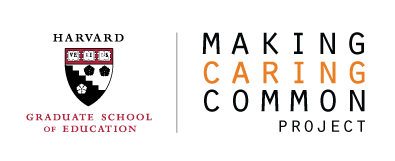Stereotypes are all around us, and we are all prone to stereotyping others without even knowing it. The Confronting Stereotypes strategy and related routines gets students in the habit of noticing and understanding the components of stereotypes, including distinctions from bias and prejudice. In the process, students develop their understanding and concern for certain groups or identities that they might be apt to make assumptions about.
With this light-lift strategy, students reflect on their implicit associations, and learn about the connections with and between stereotypes, biases, and prejudice. Students engage in a stereotype scavenger hunt and generate a list of stereotypes they recognize in their everyday lives and discuss how the stereotypes can be re-framed. They watch and discuss short clips about one girl’s story of inspiration or view different media to discuss its role in perpetuating stereotypes.
Currently, our Confronting Stereotypes strategy is available to schools in our Caring Schools Network and to schools participating in the Middle School Kindness Challenge. The related routines are available below. Reach out to Glenn Manning, Senior Program Coordinator at Making Caring Common to learn more about Caring Schools Network.
Read More





